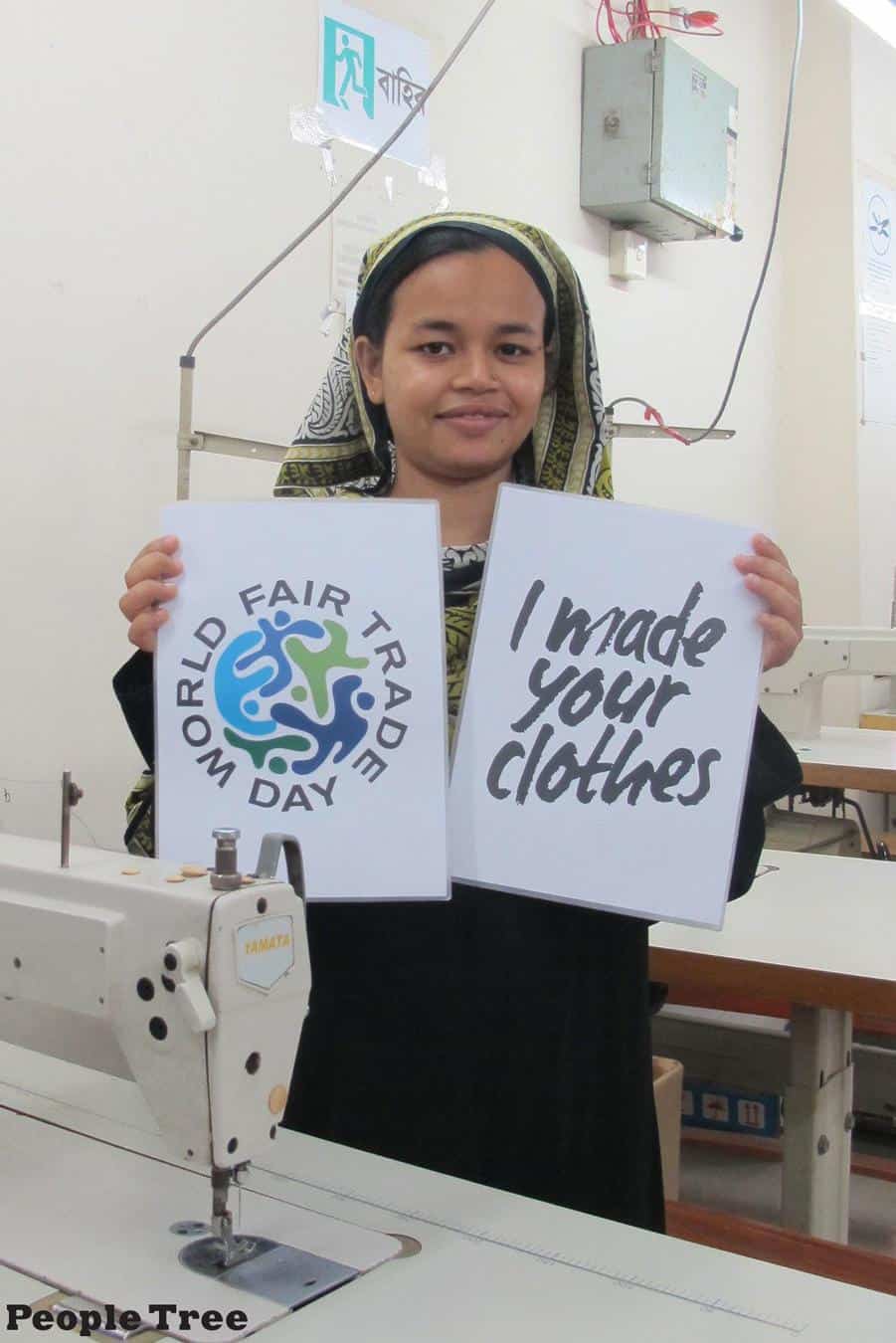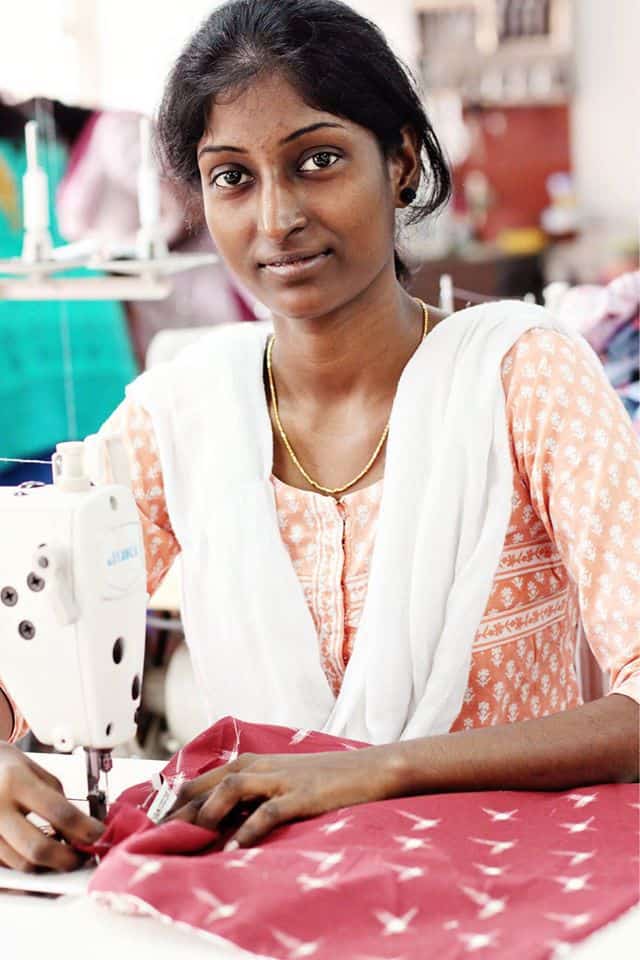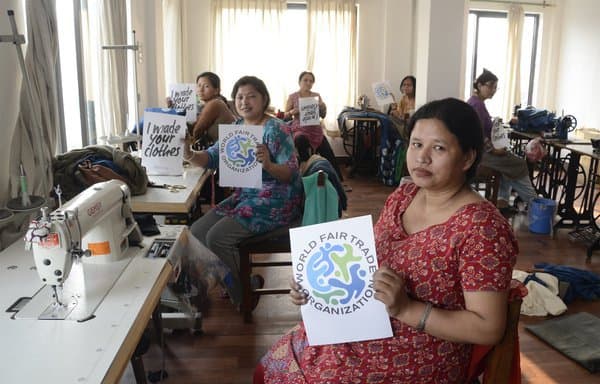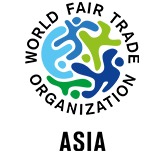
This April 24-30, consumers and brands in more than 80 countries will come together to mark Fashion Revolution Week 2017. For the fourth year running, millions of people will take to social media to call for greater transparency in the fashion industry.
Fashion Revolution was founded in 2014 to acknowledge the 1,129 garment workers who lost their lives in the Rana Plaza factory disaster outside Dhaka in Bangladesh. It has turned into a global movement that questions the entire fast-fashion system, where the people who make our clothes are ignored and undervalued.
With Fashion Revolution Week 2017 fast approaching, we’re taking a closer look at how the Principles of Fair Trade can be used to solve some of the fast-fashion industry’s biggest challenges and shape fairer supply chains in Asia and beyond.
Asia: the wardrobe of the world
In 2016, an estimated 150 billion items of clothing were produced in garment factories. Cheap labour and a lack of regulations has made Asia the locus of the ready-made fashion industry, with four of the world’s biggest garment producing nations located in our region. The garment sector in Bangladesh, India, Cambodia and China provides formal and informal employment for millions of people – up to 80% of whom are young women aged 18 to 24.
Fashion Revolution’s ‘Garment Worker Diaries’ series, launched in 2016, shares interviews with some of these young women. The Diaries shine a light on the challenges garment workers in Cambodia, India and Bangladesh face, and shows that many of fashion’s biggest problems are concentrated on Asia’s factory floors.


10 principles for fairer fashion
Central to reform in the fashion industry is the call for a living wage for garment workers. According to UK NGO Labour Behind the Label, the minimum wage for garment workers in Bangladesh, Sri Lanka, Cambodia and India is not enough to cover basic living needs. Many workers turn to overtime to supplement their income, with garment workers in China doing up to 150 hours of overtime each month just to make ends meet. Fair Trade Principle Four, Payment of a Fair Price, highlights the importance of a living wage rather than a minimum wage. A living wage is calculated based on the cost of food, rent and utilities, labour productivity and other factors, and increases according to fluctuations. Principle Four relies on dialogue and participation between different stakeholders when setting wages, and thereby responds to workers’ real needs.
Disasters like the Rana Plaza collapse attest to poor and unsafe working conditions in many of the world’s garment factories. Cost-cutting measures and lack of accountability mean that factories often fail to meet basic health and safety requirements. Fair Trade Principle Seven aims to ensure that workplaces comply with standards set by the International Labour Organisation, while Principle Six protects workers’ right to collective bargaining. Freedom of association to join a union gives workers’ the right to lobby for better working conditions and hold management accountable.
Women’s economic empowerment through equal pay and benefits is also covered under Fair Trade Principle Six. According to Human Rights Watch, up to 92% of garment workers in Cambodia are women, and women also make up the majority of homeworkers. Discrimination based on pregnancy, sexual harassment and denial of maternity benefits are all widespread in Cambodia’s garment industry, making women’s rights a particularly pressing issue in the country. Opportunities for skills training improve women’s mobility and autonomy, while short-term contracts and production line-style work – the dominant model in most garment factories now – limits workers’ opportunities to develop transferable skills. As a result, few have an opportunity to move up in the workplace.
The fashion industry is the world’s second biggest industrial polluter after oil. The environmental impact of fast-fashion not only has an adverse effect on the environment, but also has direct consequences for workers’ health and well-being. In Cambodia for example, mass-faintings of workers who make shoes are attributed to the use of toxic glues in the manufacturing process. Fair Trade Principle 10, Respect for the Environment, promotes the use of sustainable and organic materials to limit negative impacts on the health of workers and the planet.
Transparency is an overarching issue in the fashion industry and a major focus of the Fashion Revolution Week campaign. The fashion industry of today is opaque and complex, making it almost impossible to trace a garment’s supply chain. Fashion Revolution’s call for greater transparency is intertwined with Fair Trade Principle Two and WFTO’s ‘Be an Agent for Change’ campaign.

Fair Trade is already having a real impact on the global fashion industry. More than 90 WFTO Asia Member organisations currently work in fashion and accessories, employing the Principles of Fair Trade to provide safe working conditions and protect their rights of their employees. These Agents for Change not only impact their lives of workers, their families and their communities, but also set an example for other brands operating in the region.
By Emily Lush, Wander-Lush
